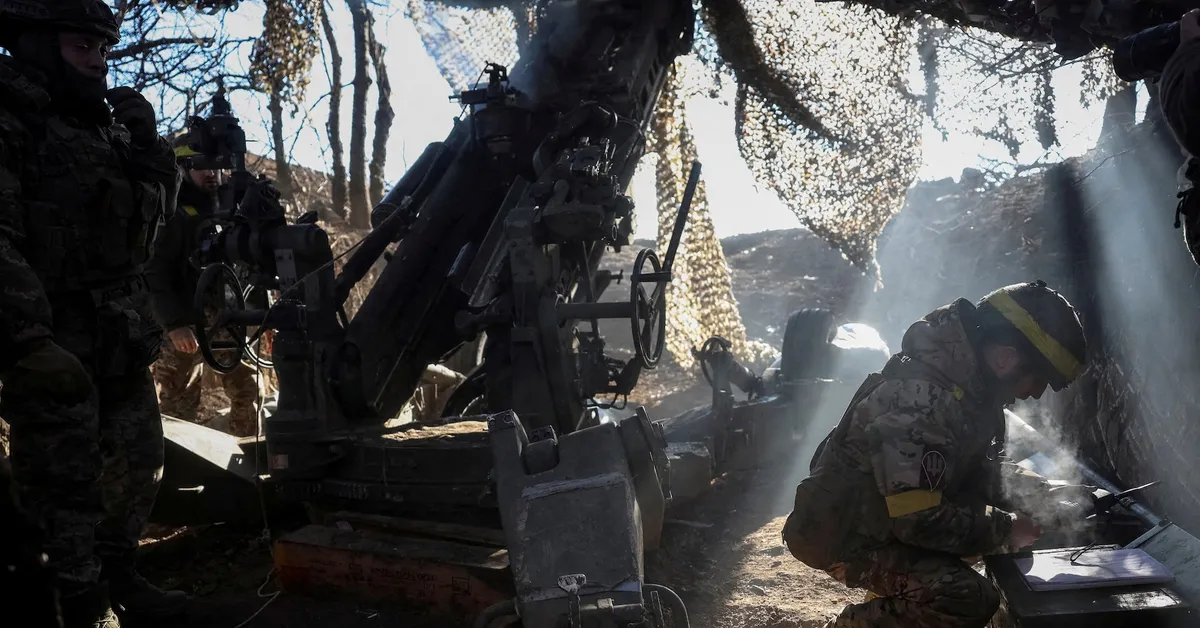
The intelligence agencies of the Netherlands and Germany have recently unveiled alarming evidence indicating the extensive use of banned chemical weapons by Russia in Ukraine. This includes reports of Russian forces employing a choking agent dropped from drones to force Ukrainian soldiers out of their trenches, making them vulnerable to gunfire. The findings were disclosed on July 4, with Dutch Defence Minister Ruben Brekelmans advocating for stricter sanctions against Moscow.
Minister Brekelmans stated, "The main conclusion is that we can confirm Russia is intensifying its use of chemical weapons." He expressed grave concern over this trend, emphasizing that the normalization and standardization of chemical weapon usage by Russia has been escalating over the past several years. The German foreign intelligence agency, BND, corroborated these findings, citing joint investigations with Dutch intelligence.
Peter Reesink, head of the Dutch Military Intelligence Agency (MIVD), affirmed that their conclusions stemmed from independent analysis, stating, "We have observed it ourselves based on our own investigations." However, it is important to note that Reuters has not independently verified these claims regarding the use of chemical weapons by either Russia or Ukraine.
The United States initially accused Russia of utilizing chloropicrin, a chemical compound classified as more hazardous than traditional riot control agents, in May of the previous year. This compound was first employed by Germany during World War One. The Ukrainian government has alleged thousands of instances of Russian chemical weapons deployment throughout the conflict.
In response to these allegations, Russia's defense ministry has vehemently denied the use of illegal munitions, instead accusing Ukraine of similar actions. Russian foreign ministry spokeswoman Maria Zakharova claimed that a cache of explosive devices containing chloropicrin was discovered by the Federal Security Service in Eastern Ukraine. Ukraine has consistently refuted such accusations, leading to a complex narrative surrounding the alleged chemical warfare.
The Organisation for the Prohibition of Chemical Weapons (OPCW), a disarmament agency based in The Hague with 193 member states, stated last year that the initial accusations exchanged between Russia and Ukraine lacked sufficient substantiation. The OPCW has not been formally requested to conduct a comprehensive investigation, as such actions must be initiated by member states.
According to Brekelmans, at least three Ukrainian fatalities have been linked to chemical weapons usage, with over 2,500 battlefield injuries reported to Ukrainian health authorities, indicating symptoms consistent with chemical exposure. He warned that the increased use of chemical weapons by Russia poses a significant threat not only to Ukraine but also to other nations.
Brekelmans has emphasized the necessity of increasing pressure on Russia, advocating for further sanctions and the exclusion of Russian participation in international bodies like the Executive Council of the OPCW. The intelligence findings were presented to the Dutch parliament, highlighting the urgency of international action against Russia's alleged chemical warfare practices.
The intelligence agencies from the Netherlands and Germany have uncovered substantial evidence pointing to a large-scale chemical weapons production program in Russia. This includes heightened research capabilities, recruitment of scientists for chemical weapons development, and directives issued to soldiers on the use of poisonous agents. Reesink remarked, "This isn't just some ad-hoc tinkering at the frontline; it is truly part of a large-scale program," which raises serious concerns about the ongoing conflict and its implications for global security.
Reesink also linked the use of chloropicrin to improvised munitions, such as makeshift devices created from light bulbs and bottles dropped from drones. The misuse of existing munitions to deploy tear gas was also noted. Chloropicrin is recognized as a banned choking agent by the OPCW, which was established to monitor compliance with the 1997 Chemical Weapons Convention (CWC).
This situation underscores the pressing need for the international community to address the escalating threat posed by chemical weapons in Ukraine and the broader implications for global peace and security.